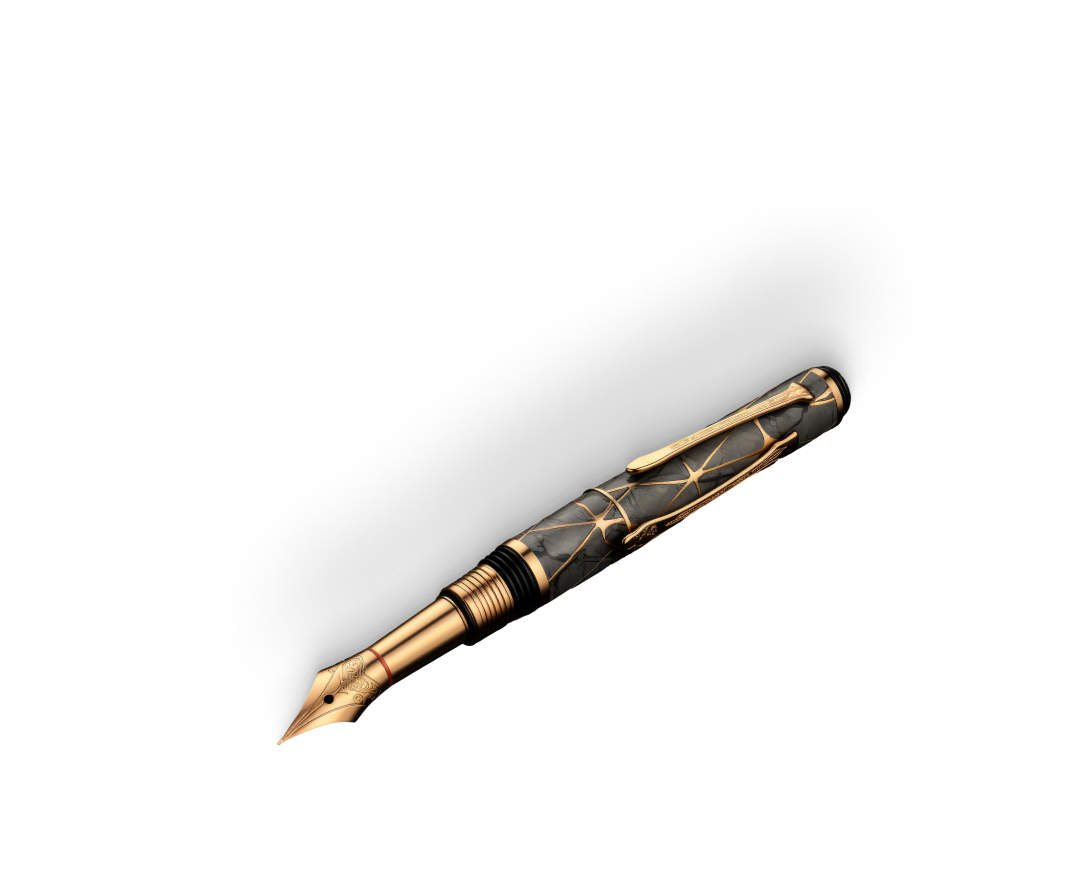About
DOUGLAS DAY
STEWART
I grew up wanting to be a novelist. My uncle was a best-selling author and as a little boy I dreamed of following his lead.
In second grade, I started writing
short stories. My English teacher called me
“the Master of the Metaphor.”
In high school, I studied Shakespeare like a religious fanatic might read the Bible, and learned from the Bard that a writer should speak to all of humanity, the high and the low, and I aspired to do that. I became an avid reader of the classic novels of that era. Hemingway and Fitzgerald and Steinbeck became my revered teachers.
I told everyone that I was going to be a writer. But my father had other plans. He was a life insurance salesman and very conservative, so I went to a business college instead of somewhere that my writing could flourish.
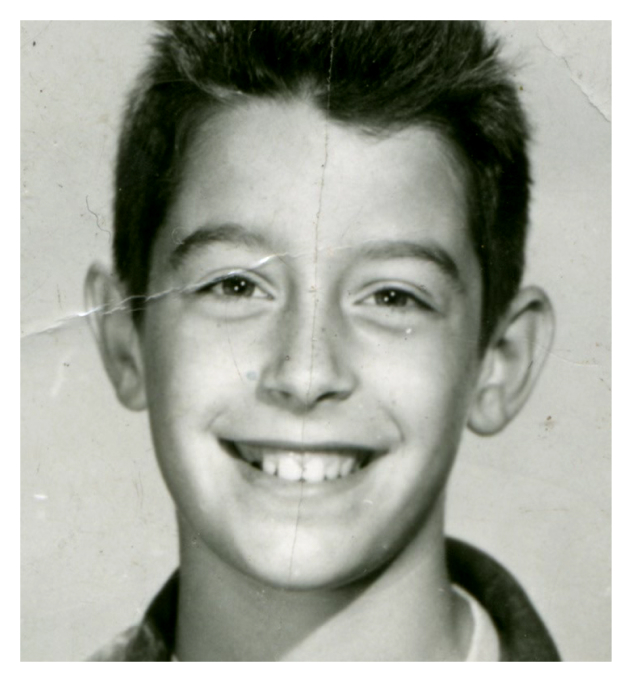
After graduating from Claremont Men’s College in 1962, I faced the draft and decided to serve as an officer in the Navy. I applied for jet training but was booted out because of an injury suffered as a boy. I ended up as a shipboard officer. Because of my high security clearances, I was chosen to be on a seven man team that sent 300,000 Marines to Vietnam, marking the start of the Vietnam War.
Standing watch on cold nights in ports around the world, I continued to write my short stories and send them to magazines in the hope of a sale. When my tour was up,
I announced to my family that I wanted to continue my education so that I could learn to be a good writer.
My father told me he would only pay for my education if I went to law school.
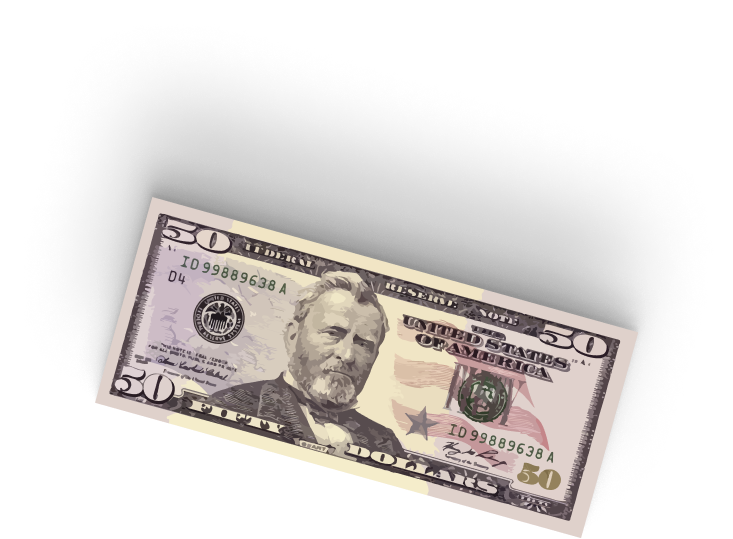
Fortunately, I was offered scholarships and financial support from Yale School of Drama and Northwest University’s Department of Radio, Television, and Film
I chose Northwestern because of a revered writing professor.
This teacher advised me that in 1965 being a novelist or a playwright was an antiquated dream and that film was the medium of our time. I loved films but I was not an avid film buff, so I continued to hold out hope for my original ambitions. My first sale as a writer came in 1965 when I published a short story in a men’s magazine. I think I got fifty dollars. But it was a start.
When I received my M.A., I was chosen as a Shubert Playwriting fellow and embarked on a doctorate degree in playwriting at Northwestern, for which I was required to write a play. If it got produced, I was on my way. It wasn’t.
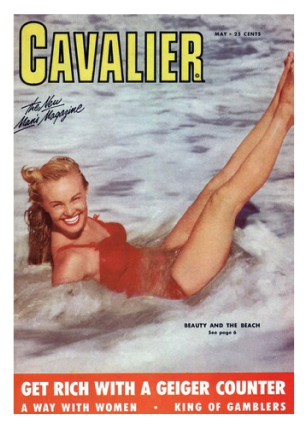


In 1967, reality came knocking at my door. My marriage was on the rocks and I could no longer afford to live on my fellowship.
I had to make a living.
For a while, I had success as an actor in industrial films and as a model for Playboy ads. I wrote the soap opera “Days of our Lives.” Then I was hired to write industrial and educational films.
In 1968, I decided to try my hand in Hollywood and was shocked when I landed a deal to write a movie my first week in town. The film starred James Caan and Sammy Davis Jr. but was never released. Other disappointments followed and suddenly I was just another struggling writer. I had to sell school supplies over the telephone to pay my rent.
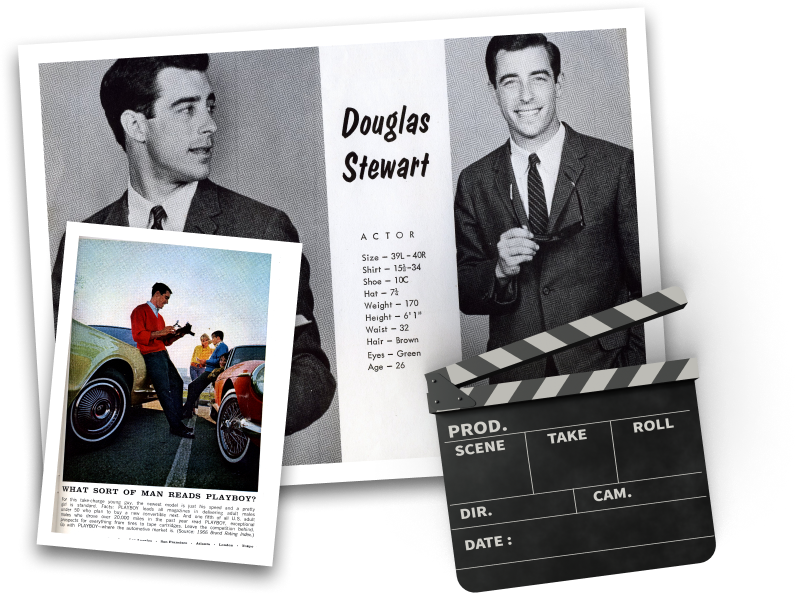
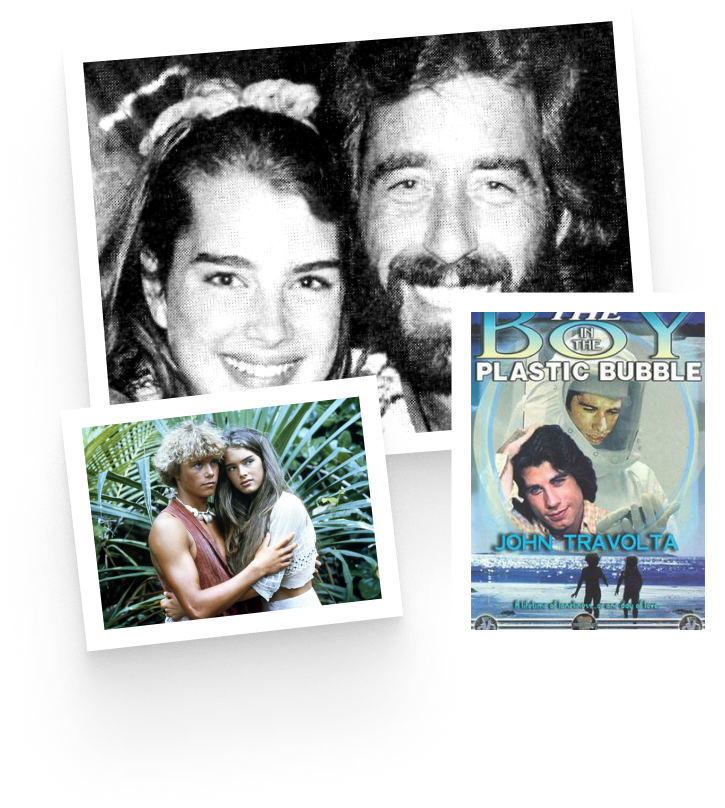
My luck turned in 1973 when I was hired to write an episode of “Room 222,” a popular television show in its second season. I wrote four episodes for that show that season. The following year, I wrote an episode for “Bonanza”, an episode of “Longstreet,” and an episode of “Cannon.” Next came the acclaimed TV movie of the week, “The Man Who Could Talk To Kids,” and then the TV movie that launched John Travola’s career, “The Boy in the Plastic Bubble,” which earned me a nomination for an Emmy Award.
My first feature film “The Other Side of the Mountain Part II, about the skier Jill Kinmont, was well received. My second film, “The Blue Lagoon” would impact the lives of young people the world over.
Next came “An Officer and a Gentleman,” an original screenplay based on my own experiences as a Naval Officer Candidate who had survived that grueling school, suffered the harsh hand of a drill instructor, and dated a local factory girl.
To protect my very personal work, I made it part of my contract to be a producer on the film. I was nominated for an Academy Award for Best Original Screenplay. Louis Gossett Jr. would win the Academy Award for Best Supporting Actor, making him the first black actor to do so.
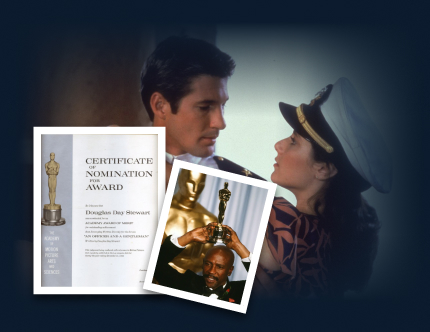
After three successive hits (“The Boy in the Plastic Bubble,”
“The Blue Lagoon,” and “An Officer and a Gentleman,”)
I became the hottest writer in Hollywood.
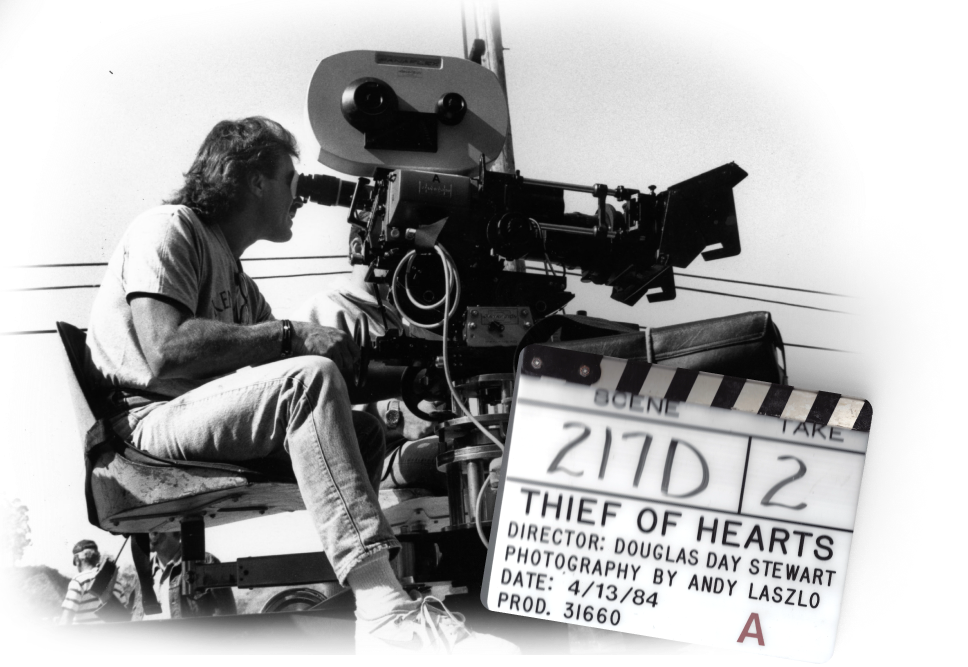
But my personal life was a mess.
My first marriage had failed and my second marriage, while producing two wonderful sons, would not survive the challenges of success. My failed search for love had led me to write stories that would impact the lives of millions around the world but I was better at creating fantasies than achieving them in life. I would be sixty years old before I would meet the right woman.
While I was enjoying the success that few writers achieve, I still longed for the respect that novelists and playwrights receive. Hollywood writers are considered journeymen. Actors and directors take all the credit. This forces writers to make contortions to claim any part of the limelight. As a director of two of my films, cult-favorite “Thief of Hearts” and the controversial “Listen to Me,” I was accorded more respect, but I still felt I was meant to do more with my talent.
In 2003, I tried my hand at playwriting by taking “An Officer and a Gentleman” to the musical stage. Versions were performed in Japan, Australia, the UK, and the U.S. Currently in its second UK tour, the musical is getting standing ovations every night. Working with talented directors, musicians, and performers, was a sweet taste of the world I had dreamed of as a young man but I wanted more.
My opportunity finally came a few years ago. I had just turned eighty and was feeling old and discouraged. Then covid hit. For four decades I’d tried to come up with a sequel to “An Officer and a Gentleman” that was worthy of the original, but as time passed and the original was acclaimed a classic, that got harder and harder to do. Finally, forty years later, I knew what that story would be.
I had been living it without knowing it for the last
thirty years.
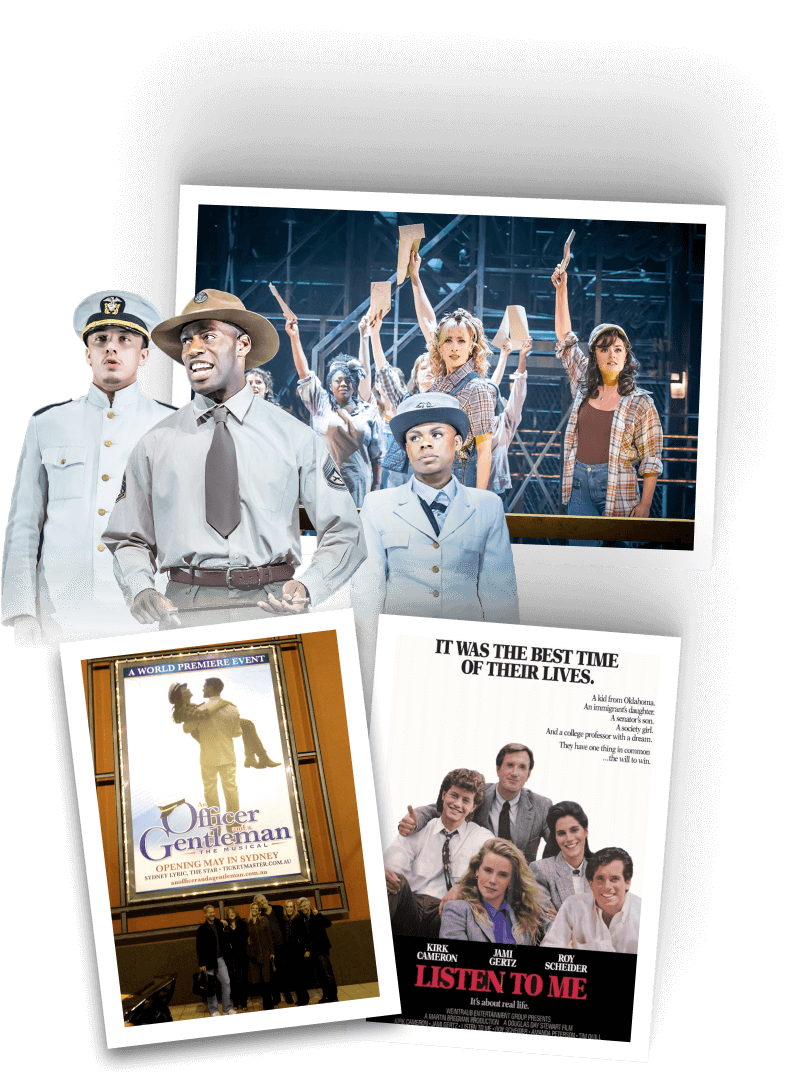

During covid, Hollywood shut down, so I decided to write An Officer and a Gentleman’s Daugther as a novel. As I had done with all my previous stories, I drew heavily on my own life experiences. While success in marriage had eluded me, I prided myself on being a total family man.
My two sons and I have shared a world of adventures and I consider them my best friends. But it wasn’t until I had a daughter that I had the basis for my long awaited sequel.
Fathers and daughters have a rare bond that is seldom explored in fiction.
Writing a novel gave me a freedom that
was intoxicating.
I could render my characters in a much more dimensional way. I could explore themes in my own life. I came to see how it had been my own secrets of the heart that had held me back in my quest for love.
When my New York agent sold my novel to Blackstone Publishing, I was thrilled. I immediately began work on my second novel, Wings of Giants, a love story set against the Tiananmen Square protests. I know that it’s my best work ever. I plan to follow it with even better.

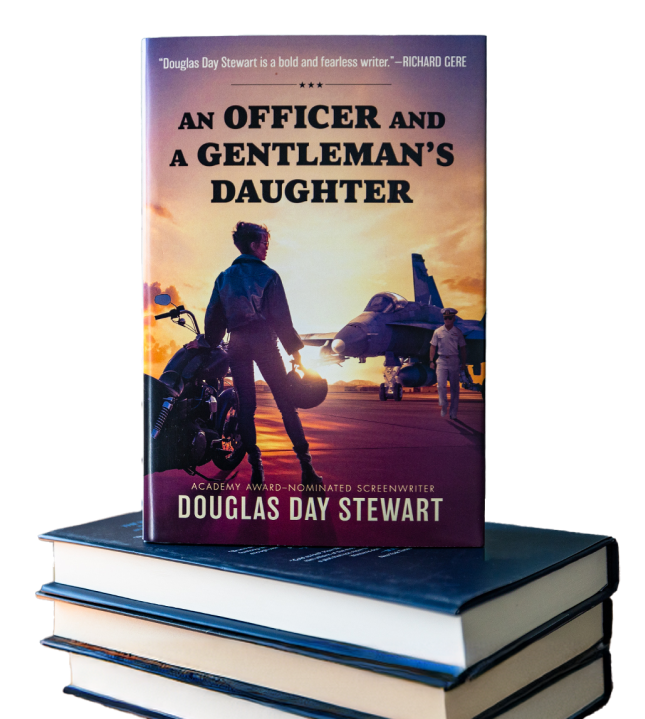
It might sound crazy, but I feel like my
life is just starting.
I hope I can encourage others to confront their final chapter with the vigor it deserves.
Meet
Douglas Day Stewart
Academy Award Nominee.
Emmy Award Nominee.
Writer's Guild Nominee.
Douglas Day Stewart was born on January 1, 1940, in Oklahoma City, Oklahoma. He graduated from San Marino High School in 1958 and Claremont Men’s College in 1962. After serving three years as a Naval officer (1962-1965), in which he saw duty in the Vietnam War, he received an M.A. from Northwestern University in Radio, Television and Film. In 1967, he was awarded the coveted Shubert playwriting fellowship.
Stewart is best known for his original screenplay “An Officer and a Gentleman,” which was based on his own experiences as a Naval Officer Candidate undergoing rigorous training while dating a local factory girl. The film earned Stewart an Academy Award and Writers Guild nomination for best original screenplay. In addition to the many accolades and awards garnered by the film, including Academy Awards for Best Supporting Actor and Best Song, “Officer” is one of the ten highest grossing love stories in cinema history.
Stewart’s other writing credits include Emmy-nominated “The Boy In the Plastic Bubble”, (the 1980 ABC television movie that launched John Travolta’s career), “The Scarlet Letter” starring Demi Moore, thriller “Thief of Hearts” and the controversial film “Listen to Me” with the last two movies directed by him.
On June 25th of 2024, Stewart’s first novel will be in bookstores. An Officer and a Gentleman’s Daughter is a father and daughter love story that takes place 35 years after the first story. A film version is planned. Stewart has recently completed. Stewart is hard at work on his second novel, a love story that takes place during the Tiananmen Square protests.
Stewart lives in Malibu, California. He is the father of three, sons Dylan and Sean, and daughter Shady. He is married to artist Judith Gersten Stewart.
“I was raised by a very strong father and a very strong mother. My mother taught me to believe that love always conquers evil. That is always the underpinning of every story I tell. My father taught me that we must all be prepared to fight for our dreams, and for our survival, even if that meant physically. This toughness permeates all my work. Growing up I saw how terrified most people were of their own feelings. I try in my writing to give my feelings full voice.”
Douglas Day Stewart
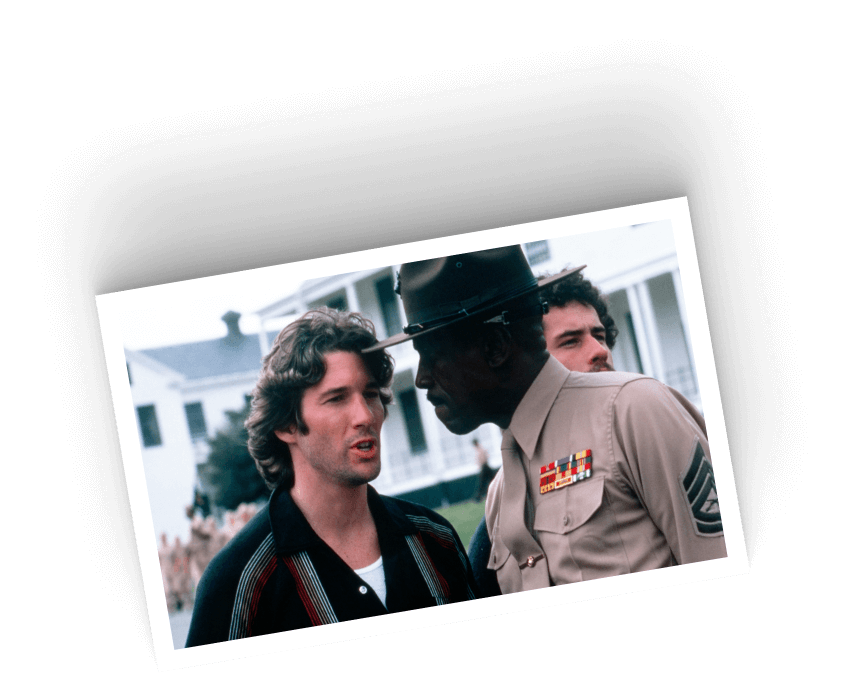
Richard Gere recently complimented me by saying:
“Doug Day Stewart is a bold and fearless writer.”

What
I Stand FOR
- Character choices define our lives.
- Purge the secrets in your heart before they become an alternative you.
- Love is the most underrated power in the universe.
- Don't imitate, innovate.
-
They say that opposites attract. But relationships work better
with like-minded partners. - When we let love into our lives we become the person we were supposed to be.
- Love is not possible without trust, and trust begins with trusting ourselves.
